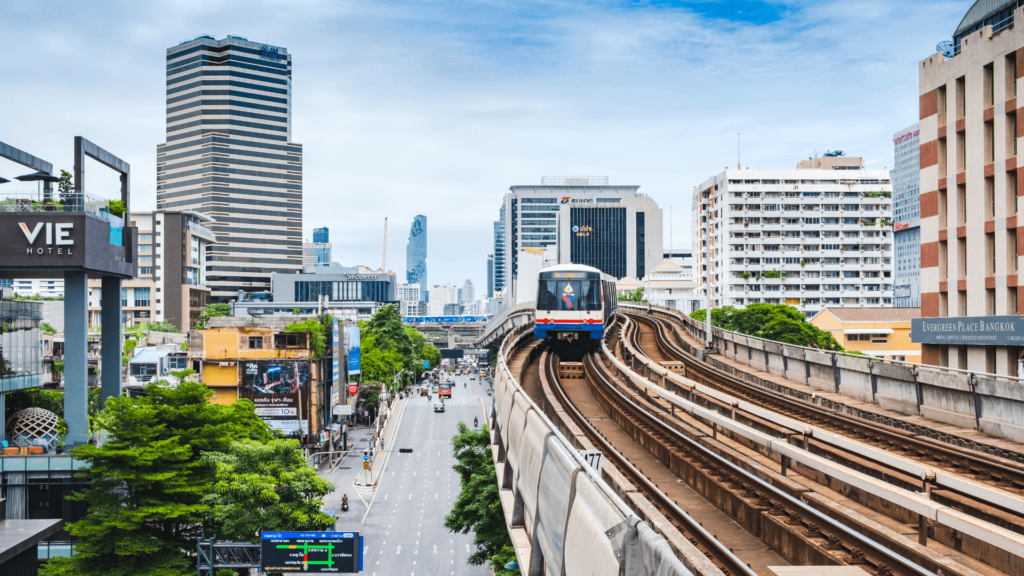Achieving the single market in transport: independent digital ticketing
This article by Alexander Ernert, Director of Government Relations, Europe at Trainline, originally appeared in the European Transport Regulation Observer 'Single Digital Booking and Ticketing'
The promotion of sustainable travel and a modal shift to less polluting modes of transport remains an ongoing commitment in overall EU policies. In a report, Enrico Letta considers that the Single European Railway Area has not yet been fully achieved. He notes that “Rail market opening, which started 25 years ago, has been hampered by the fragmentation of markets and infrastructure, the persistence of legal and de facto monopolies, as well as formidable technical barriers.”
Better distribution of rail tickets can overcome some of these fragmentation gaps. When planning and making their journey, travellers wishing to use rail as their transport mode need to know how to make connections on cross-border routes, how to book different operators, be they regional or long-distance with the recent successes of market opening in these areas. In most cases, the relevant rail offer is available, but it needs to be sorted out and presented correctly for the benefit of potential rail travellers. As a result, the modal shift benefits and railway operators get more customers on their existing trains.
Independent Platforms as Enablers of Modal Shift
Trainline is a solution for this as an independent rail and bus ticket distributor. It acts as a digital marketplace for all rail offers in Europe (its inventory includes more than 270 rail and coach operators selling in more than 45 European countries in 12 languages). The main purpose is to find the most suitable rail and/or combined bus-rail service for the customer’s needs, regardless of which railway is operating. It can surface and seamlessly combine journeys across multiple operators.
A study commissioned by Trainline from Charles Rivers Associates supports these arguments for an improved modal shift. According to the study, 18 per cent of Trainline’s customers on high-speed lines with competition in Spain are incremental users. This means that these rail travellers would not have used the train if they had not booked their ticket with Trainline. In addition, these customers were not diverted from the carriers’ own distribution sites. It follows that independent distributors are an important pillar in the realisation of the EU-wide single transport market and the aim of increasing sustainable transport in the EU.
The promotion of sustainable travel and a shift to less polluting transport modes is a key focus of EU policies. To improve connectivity for rail travellers, better distribution of rail tickets is essential. A study commissioned by Trainline shows that 18% of customers on competitive high-speed lines in Spain are first-time rail users, emphasising the importance of independent distributors in promoting sustainable transport. The EU's SDBTR is crucial for the development of this sector, ensuring fair data access and remuneration for railway carriers. Dominant platforms face regulations requiring them to sell tickets for all operators, but this may hinder competition and innovation in the digital distribution market by reinforcing incumbents' dominance.
Trainline, Omio, Kombo and BlaBlaCar are members of the newly created French association of independent transport and mobility ticket distributors, ADN Mobilité. The association is lobbying for recognition of this industry field, which is emerging at the intersection of technology and the rail industry, which is still unique in Europe by geopolitical standards.
Regulatory Foundations: Fair Access and Remuneration
The EU-Com ‘Single Digital Booking and Ticketing Regulation’ project is essential to create the right conditions for the further development of independent rail ticketing and thus to promote the various benefits mentioned above. It is essential, because the further development of the relevant platforms depends on full parity access to data and other tools from the railway carriers and fair remuneration to railway carriers for their services. The market is not able to solve this problem alone, as competitors of the independent digital distributors, the state-owned railway operators, are dominant in their historical geographical territory in the upstream market for long-distance passenger railway operations and in the downstream market for distribution. Despite several attempts in the past to address these issues with competition law – decisions by the national competition law authorities were issued in 2009 and 2014 in France, in 2023 in Germany and in 2024 as a settlement between DG Comp and RENFE – the results are only partial. They do not bring the necessary balance between all parties, especially in the economic part of the relationship.
As a basis for their commercial negotiations, independent distributors therefore need principles that can be enforced by regulatory authorities. The regulatory model is familiar from other sectors that have suffered from failing markets, such as telecommunications and energy. It is also inherent in the railway directives, which provide cost-models for calculating track access charges to be enforced by the national railway regulatory authorities. FRAND principles integrate viable remuneration that can be calculated based on available regulatory methodologies that can be enforced by national regulatory authorities. France has in place an exemplary law on digital distribution that covers the above-mentioned mechanisms for regional ticket sales.
Challenges of the Current Draft Regulation
The current draft regulation requires dominant distribution platforms, such as DB Navigator and SNCF Connect, to sell tickets for all railway operators. The aim seems to be to improve the visibility of new entrants on the most used distribution platform in the relevant market. However, this will complicate the emerging pan-European digital distribution industry, as customers will continue to buy from the incumbents’ platforms. At the same time, innovation in distribution will slow down, as the incumbents’ platforms do not need to improve due to the emerging competition on the sales side. It is also likely that that the incumbents’ distribution channels will continue to favour their own operators’ offerings, therefore requiring significant regulatory and administrative efforts. This is disproportionate, as examples of market entries on the passenger railway operations side in Italy, France and Spain show that the obligation to sell is not necessary if independent distributors are present in the market and can promote the new entrants.
Read the full Policy Brief ‘Single digital booking and ticketing, and multimodal digital mobility services’ for more information.




